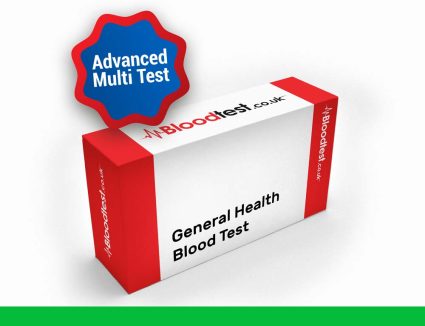Your Definitive Guide to General Health Blood Tests in Solihull for Optimising Well-Being
Participating in a general health blood test in Solihull represents a proactive strategy for enhancing and sustaining your overall well-being. These critical assessments are meticulously designed to evaluate a broad spectrum of health markers, providing a nuanced understanding of your overall health status. By detecting potential health issues that might otherwise remain undetected, these blood tests empower you to take charge of your health journey. This enables you to make informed decisions regarding your lifestyle and medical treatment options, ultimately paving the way for improved health outcomes.
The Crucial Role of General Health Blood Tests in Preventive Care

A general health blood test in Solihull is an indispensable diagnostic procedure that scrutinises a comprehensive array of health indicators through a blood sample. This evaluation typically encompasses significant markers such as glucose levels, cholesterol levels, and liver enzymes, along with various other essential components present in your bloodstream. Through meticulous analysis of these indicators, healthcare professionals can accurately assess your overall health and identify any underlying medical conditions that may warrant further investigation, thus facilitating timely and effective medical interventions.
The testing procedure commences with a straightforward blood draw, usually conducted from a vein in your arm. This sample is subsequently dispatched to a laboratory for detailed analysis. The ensuing information can shed light on numerous aspects of your health, revealing any deficiencies or confirming whether your organs are functioning optimally. Grasping these insights is paramount for preserving peak health and averting future complications, ultimately enhancing your quality of life.
Explore Our Guide in Audio Format for Your Convenience!
 The Essential Significance of General Health Blood Tests
The Essential Significance of General Health Blood Tests
Regularly scheduled general health blood tests in Solihull are vital for a multitude of reasons. Primarily, these tests facilitate the continuous monitoring of your overall health, allowing for the early detection of potential health issues. For instance, recognising elevated cholesterol or abnormal glucose levels can lead to timely lifestyle modifications or medical interventions before serious conditions develop, ultimately safeguarding your health and well-being.
In addition, these tests act as vital preventive measures. Routine screenings can unveil diseases such as diabetes, heart disease, and liver dysfunction at their earliest stages, when treatment options tend to be most effective. Engaging in these tests can save lives and significantly reduce long-term healthcare costs, rendering them an indispensable aspect of your health maintenance strategy.
Moreover, possessing a clear understanding of your health markers can inform your lifestyle choices, encompassing diet and exercise, while also guiding any necessary medical interventions. This knowledge empowers you to take control of your health and enhance your overall quality of life.
How to Effectively Interpret Your Blood Test Results
The results of a general health blood test in Solihull can present a spectrum ranging from normal to abnormal findings. A normal result signifies that your health is generally stable, whereas any abnormal results may necessitate further investigation. Each health marker is linked to a reference range that embodies healthy levels, and results that fall outside these boundaries may indicate potential health concerns.
For instance, elevated liver enzymes may suggest inflammation or damage to the liver, while high cholesterol levels could signal an increased risk for cardiovascular diseases. Understanding these results is crucial, as they form the foundation for any necessary follow-up discussions with your healthcare provider, guaranteeing that you receive the most appropriate care tailored to your specific needs.
Essential Preparation Tips for Your Blood Test

Effective preparation is paramount for obtaining accurate results from your general health blood test in Solihull. Understanding the necessary steps to prepare can streamline the process and enhance the precision of the testing.
Key Preparatory Steps for Your Blood Test
Preparing for a general health blood test in Solihull entails several critical steps, especially concerning dietary restrictions. Your healthcare provider may recommend fasting for a specific period before the test, generally ranging from 8 to 12 hours. This fasting duration is crucial to ensure that food intake does not interfere with the glucose or lipid levels present in your blood, thus delivering a more accurate portrayal of your health markers.
Furthermore, it is essential to inform your healthcare provider about any medications you are currently taking, as certain medications can influence test results. They may suggest that you temporarily discontinue particular medications prior to the test. Additionally, staying well-hydrated by drinking water can facilitate the blood draw by making your veins easier to locate, ensuring a smoother experience overall.
What to Anticipate During the Blood Test Procedure
The experience of undergoing a general health blood test in Solihull is generally straightforward and swift. A trained healthcare professional will first disinfect the skin area on your arm before inserting a needle into a vein to collect the blood sample. Some individuals may experience a slight pinch; however, the procedure is typically brief and involves minimal discomfort.
After the blood draw, a small bandage is usually applied over the puncture site. Most tests can be concluded within just a few minutes, enabling you to resume your daily activities almost immediately. The collected sample will then be sent to a laboratory for comprehensive analysis, with results typically available within a few days, keeping you informed about your health status.
Post-Test Care and Follow-Up: Important Considerations

Following your general health blood test in Solihull, it is crucial to monitor the puncture site for any signs of bleeding or unusual swelling. Applying gentle pressure can help minimise any bruising that may occur. Should you observe excessive bleeding, pain, or symptoms of infection, it is prudent to promptly contact your healthcare provider for appropriate advice.
Your healthcare provider will arrange a follow-up appointment after the test to discuss your results. They will assist you in interpreting the implications of the results for your overall health and outline any necessary next steps. Being proactive about this follow-up can significantly enhance your understanding of your health situation and support you in making informed decisions moving forward.
Exploring Your Blood Test Results in Greater Depth
Interpreting your general health blood test in Solihull results may initially feel daunting, but it is essential to comprehend the significance of each marker. Your healthcare provider will provide a detailed explanation, aiding you in understanding normal ranges and what any deviations may imply regarding your health.
For example, if your cholesterol levels are elevated, it might indicate the necessity for dietary adjustments or further testing to evaluate cardiovascular risk. Conversely, normal results can offer reassurance, confirming that your health is on the right path. Being informed about your health empowers you to make educated decisions concerning your lifestyle and any necessary medical interventions.
Finding Trusted Testing Facilities in Solihull
Locating a suitable facility for your general health blood test in Solihull is crucial for effective health management. Fortunately, local residents have a multitude of options available, ensuring convenient access to essential testing services.
Utilising NHS Facilities in Solihull for Accessible Blood Tests
The National Health Service (NHS) offers multiple facilities throughout Solihull where you can obtain free general blood tests as part of routine health assessments. These services are accessible to all registered patients and can be arranged through your GP surgery or local health centre.
During your visit to an NHS facility, you will undergo a thorough evaluation, and a healthcare professional will determine whether a blood test is warranted based on your medical history and any symptoms you may present. This integrated approach ensures that your testing aligns with your specific health needs and concerns.
Exploring Private Clinics and Laboratories for Prompt Blood Testing
For those who prefer faster results or more flexible scheduling options, private clinics in Solihull provide an alternative for general health blood tests. These facilities often offer a wider range of testing services and expedited care. While there may be associated costs, the convenience of private testing is particularly appealing to individuals with busy lifestyles or urgent health concerns.
Moreover, many private clinics provide comprehensive consultations, allowing you to discuss your results in detail and explore personalised health management strategies. Scheduling appointments at your convenience can significantly reduce waiting times, enhancing your overall experience and ensuring timely access to your health information.
Leveraging Mobile Testing Units for Greater Accessibility
Mobile testing units present an innovative solution for obtaining general health blood tests in Solihull. These units frequently appear at community events, health fairs, and various locations throughout the borough, simplifying the process for residents to access testing services without needing to travel to a facility.
These mobile units bring services directly to you, enhancing accessibility for those who may encounter challenges in attending a traditional clinic. This initiative aims to foster community health awareness and encourage regular health check-ups among residents, making it easier than ever to prioritise your health.
Understanding Financial Considerations and Insurance Coverage for Blood Tests
Gaining a clear understanding of the financial implications surrounding your general health blood test in Solihull is crucial for effective health management. Costs can vary significantly depending on whether you opt for NHS services or private clinics, and it is important to be aware of potential insurance coverage.
NHS Coverage for Blood Tests: What You Need to Know
A significant benefit of obtaining a general health blood test in Solihull through the NHS is that these tests are typically provided at no cost. This provision ensures that residents can monitor their health without incurring substantial expenses. All registered patients can access these services as part of their routine health checks, effectively lowering barriers to obtaining essential health information.
Private Insurance Considerations for Blood Tests
If you choose private testing, it is advisable to review your health insurance policy to comprehend the coverage details related to general health blood tests in Solihull. Many private health insurance plans include coverage for these tests; however, specifics can differ considerably between providers and policies. Being aware of your coverage can help avert unexpected costs and ensure you receive the benefits you are entitled to.
Preparing for Out-of-Pocket Expenses for Private Tests
If you opt to use a private facility for your general health blood test in Solihull without insurance coverage, it is vital to account for potential out-of-pocket expenses. These costs can fluctuate based on the clinic and the complexity of the tests conducted. Typically, prices range from £50 to £200 for standard tests, so it is prudent to confirm costs in advance to manage your budget effectively and avoid unforeseen expenses.
Eligibility Requirements for NHS Blood Tests
Patients must meet certain medical criteria to qualify for NHS-funded general health blood tests in Solihull. Typically, your GP will evaluate your health history, presenting symptoms, and risk factors before recommending a blood test. Engaging in open discussions with your healthcare provider regarding health concerns can assist in determining your eligibility and ensuring you receive appropriate care.
Comparing Costs: NHS Versus Private Blood Tests
When contemplating between NHS and private general health blood tests in Solihull, weighing the costs against your health needs and financial situation is crucial. NHS tests are generally free, while private tests incur costs that may provide quicker services and greater convenience. Understanding the advantages and disadvantages of each option will empower you to make an informed choice that aligns with your health priorities and budget.
Deciphering and Understanding Your Blood Test Results
Comprehending your general health blood test results in Solihull is an empowering step towards enhancing your health awareness. Understanding what your results signify enables you to take a proactive stance in your well-being and health management.
Grasping Normal Ranges: A Fundamental Aspect
Each component of your blood test results possesses a normal range, which can vary among individuals based on factors such as age and sex. For instance, the typical normal range for cholesterol levels is between 3.6 and 5.2 mmol/L for adults. Familiarity with these ranges is essential for evaluating your overall health and identifying any areas that may require further attention or intervention.
In addition to cholesterol, other markers such as blood glucose levels, liver function enzymes, and white blood cell counts also possess defined normal ranges. Understanding these benchmarks will assist you in assessing the significance of your results and comprehending how they relate to your overall health picture and lifestyle choices.
When to Seek Guidance from Your Healthcare Provider
If your general health blood test in Solihull yields results outside the normal ranges, it is imperative to consult your healthcare provider for further guidance. Abnormal results may indicate underlying health issues that necessitate additional investigation or intervention. Your healthcare provider can guide you through these steps, ensuring appropriate follow-up tests or treatments are organised to address any concerns.
Being proactive about abnormal findings is essential, as early intervention can significantly improve health outcomes. Engaging in open discussions with your healthcare provider will facilitate effective health management and tailored treatment plans that suit your specific needs.
Tracking Your Health Progress Over Time for Better Outcomes
Regularly monitoring your general health blood test results in Solihull is a beneficial practice for observing changes in your health over time. By keeping a record of your results, you can identify trends and fluctuations that may indicate the need for lifestyle adjustments or medical interventions.
Consider setting reminders for regular testing, especially if you manage chronic conditions or have risk factors that require close monitoring. Staying informed about your health status empowers you to make educated decisions and proactively take steps towards maintaining your overall well-being and quality of life.
Common Tests Included in Your General Health Blood Test
During a general health blood test in Solihull, various common tests are conducted to provide a comprehensive evaluation of your overall well-being. Understanding these tests and their purposes can enhance your awareness of your health and inform your lifestyle choices.
In-Depth Examination of the Full Blood Count (FBC)
A Full Blood Count (FBC) is one of the most thorough tests incorporated in Solihull's general health blood test. This test assesses various components of your blood, including red blood cells, white blood cells, and platelets. By evaluating these components, healthcare providers can diagnose conditions such as anaemia, infections, and blood disorders, ensuring that you receive appropriate care based on your results.
For instance, low red blood cell counts may indicate anaemia, while elevated white blood cell counts could signify an ongoing infection. Understanding your FBC results is crucial for identifying potential health issues early and informing necessary lifestyle or treatment adjustments to enhance your health outcomes.
The Critical Role of Liver Function Tests (LFTs)
Liver Function Tests (LFTs) are another key component of Solihull's general health blood test. These tests evaluate liver health by measuring levels of enzymes, proteins, and other substances in the blood. Elevated liver enzymes may indicate liver inflammation or damage, which can arise from various conditions, including hepatitis or fatty liver disease.
Recognising the significance of your LFT results is critical in determining whether you require further medical evaluation or lifestyle changes. A healthy liver is essential for overall well-being, making these tests an integral part of your health assessment and proactive health management.
Evaluating Your Lipid Profile: A Vital Indicator for Heart Health
A lipid profile is an essential element of Solihull's general health blood test, assessing your cholesterol and triglyceride levels. Understanding your lipid profile is crucial for evaluating your risk for heart disease and guiding dietary and lifestyle choices. These tests typically measure high-density lipoprotein (HDL), low-density lipoprotein (LDL), and total cholesterol levels, all of which are vital for maintaining cardiovascular health.
Maintaining healthy lipid levels is critical for overall heart health, and your healthcare provider can assist in interpreting your results and suggesting necessary lifestyle changes or treatments to address any abnormalities, ensuring that you take the right steps towards improved health.
Addressing Frequently Asked Questions About Blood Tests
What is included in a general health blood test?
A general health blood test is a diagnostic tool that measures various health markers in your blood, enabling an assessment of overall health and the identification of potential health issues, thereby facilitating proactive health management.
How often should I undergo blood tests?
The frequency of blood tests can differ based on individual health needs, but it is generally advised to have testing conducted annually or as recommended by your healthcare provider, tailored to your specific health status.
Is fasting required before a blood test?
Some blood tests, particularly those assessing glucose and lipid levels, necessitate fasting for 8–12 hours prior to the test to ensure accurate results, providing a clear representation of your health markers.
Where can I obtain a blood test in Solihull?
You can receive a blood test at local NHS facilities, private clinics, or mobile testing units throughout Solihull, offering a variety of options to cater to your needs and preferences.
Does insurance cover blood tests?
Many private health insurance plans encompass coverage for blood tests, but specifics can vary. It is crucial to verify your individual policy for coverage information to avoid unexpected expenses.
What do abnormal blood test results indicate?
Abnormal blood test results may signify underlying health issues that necessitate further investigation or treatment, depending on the specific markers affected, underscoring the importance of follow-up care.
How long does it take to receive blood test results?
Results from a blood test typically take a few days to process; however, this timeframe can vary depending on the types of tests conducted and the laboratory performing the analysis.
Is a doctor's referral needed for a blood test?
In some instances, you can obtain a blood test through private clinics without necessitating a doctor's referral, although NHS tests generally require a GP referral to ensure appropriate care.
What steps should I take if I have health concerns?
If you have health concerns, it is essential to consult your healthcare provider for advice, potential blood tests, and tailored health management strategies that align with your individual needs and circumstances.
Are there any risks associated with blood tests?
Blood tests are largely safe; however, minor risks may include bruising, bleeding, or infection at the puncture site. Serious complications are rare, making these assessments a low-risk option for evaluating health.
Connect with us on Facebook!
This Article Was First Published On https://bloodtest.co.uk
The Article: Blood Test for General Health: Your Local Solihull Guide appeared first on: https://ezbloodtest.com
The Article Blood Test for General Health: A Comprehensive Solihull Guide Was Found On https://limitsofstrategy.com
The Article Blood Test for General Health: Your Essential Guide in Solihull found first on https://electroquench.com


Your insights into general health blood tests highlight their vital role in preventive care, but it’s interesting to consider the broader implications of how these tests fit into our healthcare system. Many people still remain unaware of the full range of possible indicators that can be evaluated through a simple blood draw. This can serve as a barrier to not just personal health management, but to public health overall.
You bring up a really important point about how many folks might not realize all that can be revealed from a simple blood draw. It’s almost like blood tests are this hidden treasure chest for health insights that too many overlook.
“To explore the full spectrum of what a blood test can reveal and empower your health journey, check out this resource.”
https://wearemorehouse.com/quillbot